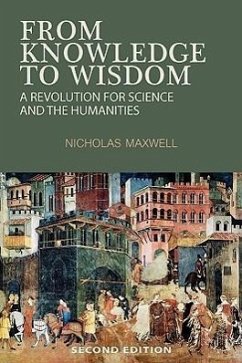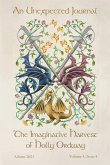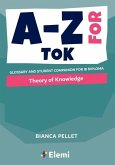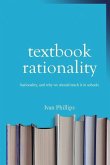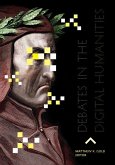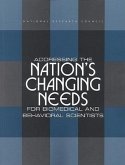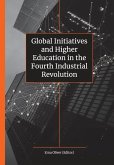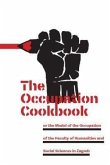What Critics Said about First Edition of From Knowledge to Wisdom
“Maxwell is advocating nothing less than a revolution (based on reason, not on religious or Marxist doctrine) in our intellectual goals and methods of inquiry ... There are altogether too many symptoms of malaise in our
science-based society for Nicholas Maxwell's diagnosis to be ignored."
Professor Christopher Longuet-Higgins,…mehrWhat Critics Said about First Edition of From Knowledge to Wisdom
“Maxwell is advocating nothing less than a revolution (based on reason, not on religious or Marxist doctrine) in our intellectual goals and methods of inquiry ... There are altogether too many symptoms of malaise in our science-based society for Nicholas Maxwell's diagnosis to be ignored."
Professor Christopher Longuet-Higgins, Nature .
“a strong effort is needed if one is to stand back and clearly state the objections to the whole enormous tangle of misconceptions which surround the notion of science to-day. Maxwell has made that effort in this powerful, profound and important book.”
Dr.Mary Midgley, University Quarterly.
“The essential idea is really so simple, so transparently right ... It is a profound book, refreshingly unpretentious, and deserves to be read, refined and implemented.”
Dr.Stewart Richards, Annals of Science.
“Maxwell's book is a major contribution to current work on the intellectual status and social functions of science ... [It] comes as an enormous breath of fresh air, for here is a philosopher of science with enough backbone to offer root and branch criticism of scientific practices and to call for their reform.”
Dr.David Collingridge, Social Studies of Science.
"Maxwell has, I believe, written a very important book which will resonate in the years to come. For those who are not inextricably and cynically locked into the power and career structure of academia with its government-industrial-military connections, this is a book to read, think about, and act on."
Dr. Brian Easlea, Journal of Applied Philosophy.
“This book is a provocative and sustained argument for a 'revolution', a call for a 'sweeping, holistic change in the overall aims and methods of institutionalized inquiry and education, from knowledge to wisdom' ... Maxwell offers solid and convincing arguments for the exciting and important thesis that rational research and debate among professionals concerning values and their realization is both possible and ought to be undertaken.”
Professor Jeff Foss, Canadian Philosophical Review
“Wisdom, as Maxwell's own experience shows, has been outlawed from the western academic and intellectual system ... In such a climate, Maxwell's effort to get a hearing on behalf of wisdom is indeed praiseworthy.”
Dr.Ziauddin Sardar, Inquiry
“ Maxwell's argument ... is a powerful one. His critique of the underlying empiricism of the philosophy of knowledge is coherent and well argued, as is his defence of the philosophy of wisdom. Most interesting, perhaps, from a philosophical viewpoint, is his analysis of the social and human sciences and the humanities, which have always posed problems to more orthodox philosophers, wishing to reconcile them with the natural sciences. In Maxwell's schema they pose no such problems, featuring primarily ... as methodologies, aiding our pursuit of our diverse social and personal endeavours. This is an exciting and important work, which should be read by all students of the philosophy of science. It also provides a framework for historical analysis and should be of interest to all but the most blinkered of historians of science and philosophy.”
Dr. John Hendry, British Journal for the History of Science
"This book is written in simple straightforward language … The style is passionate, committed, serious; it communicates Maxwell’s conviction that we are in deep trouble, that there is a remedy available, and that it is ingrained bad intellectual habits that prevent us from improving our lot … Maxwell is raising an important and fundamental question and things are not going so well for us that we should afford the luxury of listening only to well-tempered answers."
Professor John Kekes, Inquiry

